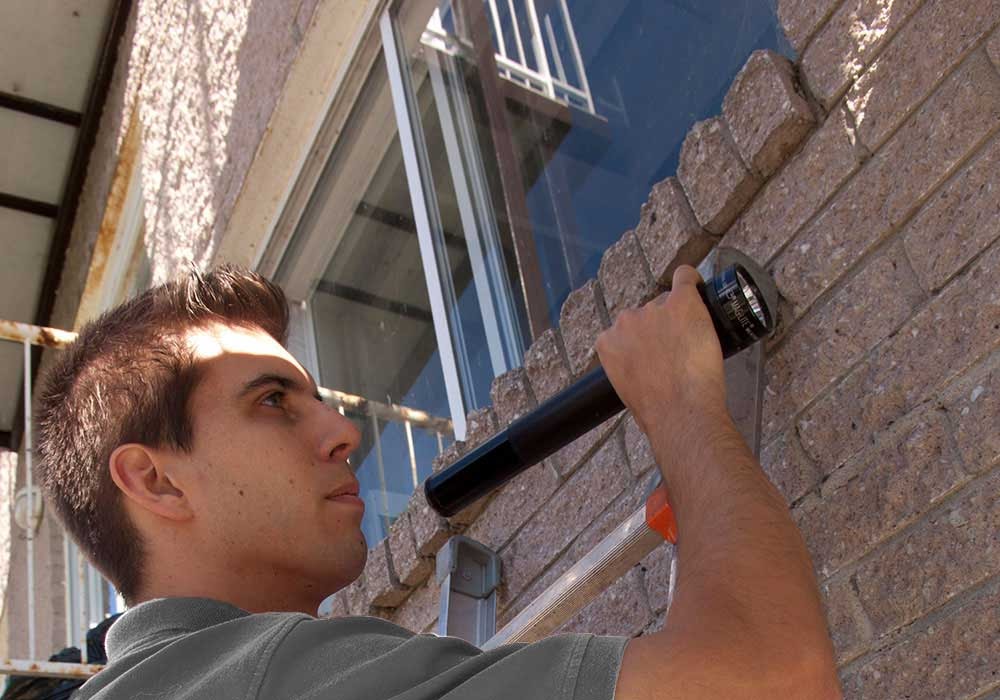Building inspection services are important to make sure the construction of any building is safe and meets local building codes. A building inspector is a trained professional who works for the city, township, or county. A building inspector is usually certified in multiple disciplines and can make professional judgments regarding building code requirements. There is a building inspection service that can help you, whether you are looking for a commercial or residential inspector.
Construction
Construction inspection services are essential to ensure that construction projects comply with all regulations and standards. They perform field inspections, issue violations notices, and halt work orders to ensure that a construction project is safe and meets design specifications. Construction inspectors must have detailed knowledge of construction trades to ensure the highest level of quality. They must also be assertive and detail-oriented.
The scope of Pre Purchase Building Inspections Melbourne services ranges from minor municipal projects to nationally recognized mega transportation projects. They provide a wide range services, including construction quality assurance, material testing, and statistical analyses. Experienced licensed engineers and certified technicians work together to deliver exceptional service and projects on time and within budget. They are experts in their field and know the importance of quality for each project.
Construction Inspection Services are provided by a Consultant to ensure that the contractor’s work meets the requirements outlined in the contract documents. When applying for a building permit, a developer must purchase a City meter, hire a meter-setting professional, and include the requirements of the meter-setting specialist in the construction drawings. These construction drawings must be submitted to the Inspection Services Division to obtain a Footing to grade Permit.
Residential
Residential building inspection services are a great way to find out whether a property is up to code. An inspector will inspect a variety aspects of a property from its foundation to its framing. They will also check for plumbing, mechanical, and electrical systems. They can also inspect any other structures on a property.
A residential building can be a single family home, a multifamily dwelling, a manufactured home, a Townhouse/Condominium, and any other structure that is designed to be used by people. A residential building inspector can help you avoid any legal troubles and ensure that your building is safe and sound for your family.

Residential building inspection services are often performed by city agencies, but you can hire a third party to do these tasks. These agencies must complete the Uniform Construction Code Third Party Agency Website Listing Information (Buildings) form. Look for an agency or company with an “R” after its name, which means it performs the full range of residential inspections.
Commercial
Commercial building inspection services check for safety hazards and other issues that could affect a business. The inspectors will look for signs of water damage, examine exterior equipment and paving, and check all signs of electrical wiring and plumbing fixtures. They will inspect windows and doors to ensure that they are safe and functioning properly. If necessary, the inspector will make recommendations for repairs or replacement.
Commercial building inspectors may have backgrounds in architecture, engineering, property, or facilities management. Their education and expertise in a particular area may mean they charge more. Commercial building inspections have many benefits. They can reveal the true condition of a building as well as the cost of ongoing maintenance and remedial work. A professional commercial building inspection is essential during certain stages of the transaction and throughout the life of a property.
Commercial building inspection services are different from residential home inspections, as they take liability issues into account, and consider issues related to safety. A buyer of a 15 year-old building might have to spend a lot to repair or replace items, while a commercial inspector will be able to identify structural issues that will need attention.
Elevator
Elevator building inspections are required for all elevators in your building. Certified or licensed inspectors can inspect elevators. In some states, a licensed inspector may perform as many as eight inspections per day. However, newer codes limit inspectors to four annual inspections and two five-year inspections per day. Depending on the inspection type and the time required, witnessing fees will vary.
An inspector will look over the different parts of the elevator and test each component. They will also ensure that the cars are operating correctly. They will also make sure that the cars reach the correct floors. If the inspections find that there is a problem, the inspector will issue a report stating what needs to be fixed. In most cases, the inspector will give the property manager a certain amount of time to correct the problems.
In addition to routine inspections, elevator building inspection services will also help the building owner or manager develop a maintenance contract rider and pricing request. A maintenance contract must contain the Maintenance Control Program (MCP) provisions. This must be in accordance with the elevator manufacturer’s maintenance protocol. It must also include a maintenance log detailing the dates and descriptions of the maintenance performed.
Coating Inspector
As a coating inspector, you need to be able to communicate well both verbally and in writing. You also need to be courteous and professional in communicating information. Although it can be difficult to give information when there are problems, being patient and calm is the best approach. You should also be able to offer alternative solutions and be well-informed.
A coating inspector is an important part of the building inspection process. In addition to overseeing the conditions where the coating is to be applied, they can also offer advice on the types of coating to use. They make sure the surface is properly prepared and follow the manufacturer’s instructions.
Industry standards are essential for coating inspectors. They should understand the SSPC-PA 2 and SSPC-SP 10 standards, as well as the requirements for each. They should also be able to use visual aids and understand the requirements for compressed-air cleanliness. They must also have the right equipment to conduct the inspections.
Elevator Inspector
An elevator inspector can help ensure that your elevators operate safely. OSHA has a standard that covers elevator inspections. However, every state has its own requirements. Some require an annual inspection, while others require tests every six months. In the case of the latter, the Department of Buildings must be notified 10 days in advance.
Elevator inspections are not difficult to conduct, but a company you choose to perform the job must be able to evaluate any issues. First, you need a company that is familiar with the American National Standards Institute’s safety guidelines. Additionally, the International Building Code as well as the Americans with Disabilities Act require that elevators meet certain standards.
After the building inspection is complete, the consultant will submit a report to the contracting agency detailing findings. These reports will include an itemized list detailing code violations and any issues that need to be addressed. These issues are important because they can prevent code violations from happening again in the future. You can improve the performance of your elevators and increase the building’s value by having an inspector inspect them.
Home Inspector
Home inspection services include the assessment of a building’s structural integrity. This service includes identifying structural problems that could lead to injuries and damages. The inspector will give a written report detailing the findings. This document will also list the items that were not observed. Items such as trees and shrubs must be examined, and a representative number of windows should be examined to determine the health and condition of glass. An inspector should also be able to report on any deterioration or damage to the roof.
An inspector must be licensed and hold professional certifications. They also should have experience in the field of inspection. Home inspectors with professional certifications are more likely to have seen a wide variety of homes and issues.
Electric Inspector
The duties of an electrical inspector include a variety tasks. They inspect the wiring of individual outlets as well as the main electrical line. They also examine plugged-in and hardwired appliances. They make sure that the appliances meet code and work properly. They can also make recommendations for remodeling or retrofit projects.
An Electrical Inspector must have experience in and certification in electrical systems to perform an inspection. They should be up-to-date on the latest codes and regulations. For appliances and outlets near water, like in kitchens, GFCI protection is required. An Electrical Inspector will inspect for circuit breakers and outlets protected by GFCI. They should also be familiar with AFCI (arc-fault circuit interrupter) protection.
An essential component of an electrical system is the cable anchoring. An Inspector will inspect cables for safety and make sure they are securely attached to wall studs. The first staple should be placed eight inches from the box, and the next four feet should follow. The cable should pass through the center of the wall studs, and be at least 20 to 24 inches above the floor. Protective plates made of metal should be installed on any penetrations in wall-studs to prevent nails from hitting wires.
Plumbing Inspector
Plumbing inspectors perform a variety of inspections and supervise construction work. They inspect new and modified plumbing and gas systems, fire suppression and sprinkler systems, standpipes, and sprinklers. A plumbing inspector will also ensure compliance with applicable laws, construction codes, and other regulations. They also supervise the work done by other inspectors.
You don’t need to be present if you hire a plumber inspector. If you wish to have the inspection done outside your home, you will need to accompany the inspector. If you have pets, ensure that they are secured before the inspector arrives. Otherwise, you should make sure to alert the scheduler if there are special circumstances that might affect the inspection.

